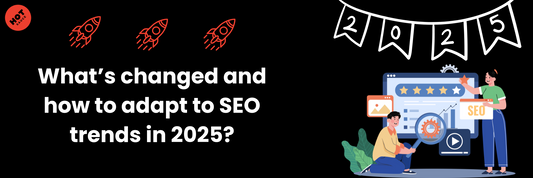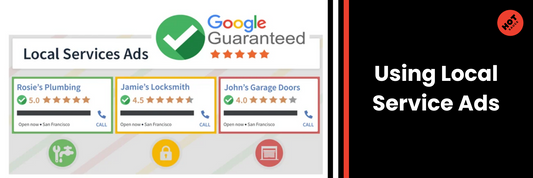If there’s one thing we know about SEO, it’s that it never stays the same for long. Google is constantly refining its algorithms, user behaviour is shifting, and new technologies like AI are changing how people search. So, what does that mean for businesses trying to rank on Google in 2025?
Let’s chat about the biggest SEO trends shaping the year and how you can adapt your strategy to stay ahead.
How is AI reshaping search results?
With Google’s AI-driven search experiences (like Search Generative Experience, or SGE), traditional rankings are no longer the only way to get noticed. AI-powered answers are appearing at the top of search results, summarizing key information before users even click a link.
How to adapt:
- Focus on E-E-A-T (Experience, Expertise, Authoritativeness, and Trustworthiness): AI prioritizes content from authoritative sources, so businesses need to establish credibility through high-quality content.
- Optimize for conversational queries: Since AI pulls from multiple sources, structuring content with FAQ sections and natural language helps your brand get referenced more.
- Prioritize schema markup: Structured data helps search engines better understand and display your content in AI-generated results.
(Related: The Ultimate Content Strategy for Your Website - Optimize your site for both AI-driven search and traditional rankings.)
The rise of zero-click searches
More users are getting answers directly from Google through featured snippets, knowledge panels, and AI summaries. That means fewer clicks, but also new opportunities.
How to adapt
- Win featured snippets: Create clear, concise answers to common industry questions.
- Use "People Also Ask" (PAA) optimization: Format content with question-based headers to increase chances of appearing in Google’s PAA boxes.
- Optimize for brand searches: Ensure your brand name and key offerings are well-optimized so you own your search results.
(Related: Mastering Local Service Ads - Appearing at the top of Google isn’t just for organic results. LSAs also give you great visibility if you’re a local service business.)
The shift to visual and video search
Users aren’t just typing queries anymore, instead, they’re using image and video search. Platforms like Google Lens and YouTube Shorts are becoming important for discovery.
How to adapt:
- Optimize images and video: Use descriptive filenames, alt text, and structured data for images and videos.
- Leverage YouTube SEO: YouTube is the second-largest search engine, so creating short-form video content that answers queries can improve visibility.
- Use AI-generated captions: These improve accessibility and help Google index video content more effectively.
(Related: Paid Social Creative Strategy - Strong videos play well into paid social marketing as well. Check out why!)
Local SEO is more competitive than ever
For businesses with a local presence, Google Business Profile (GBP) and Local Service Ads (LSAs) continue to be game-changers. But ranking in local searches is getting tougher.
How to adapt:
- Keep GBP updated: Regularly post updates, respond to reviews, and add new services.
- Build local citations: Have consistent postings in business listings across Yelp, directories, and social media.
- Encourage more reviews: High ratings influence both organic and paid local rankings.
Content quality > Keyword stuffing
Google’s 2025 updates are rewarding depth and expertise over keyword-heavy, shallow content. Thin blog posts won’t cut it anymore.
How to adapt:
- Create pillar pages & topic clusters: Organize content around key themes rather than isolated blog posts.
- Go deep, not wide: Instead of churning out new topics, focus on updating and expanding existing content.
- Use AI-assisted content wisely: While AI can help with research and ideation, that authentic human touch is what ranks well.
So, by now you probably know that SEO isn’t only about gaming the algorithm, but rather about providing a great experience for users. By focusing on AI optimization, content quality, local SEO, and new search trends, your brand got it covered.
Need help navigating SEO for your business? Let’s chat about a strategy and we’ll happily do a free SEO audit for you!



